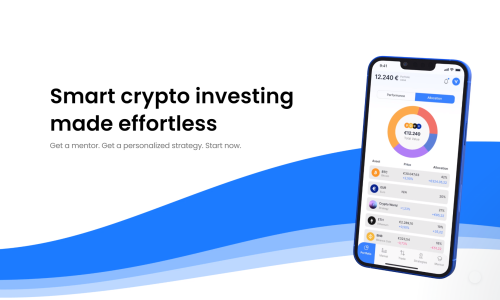Seasoned fintech expert Andrius Biceika has been an integral part of Revolut since its early days. With a journey spanning various roles within the global neobank, including leadership positions in business development, growth, and people management, Biceika’s expertise is unparalleled when it comes to how fintechs can grow and develop.
Currently serving as the Member of the Supervisory Council at Revolut Holdings Europe, a consolidated European entity of the Revolut app, Biceika supervises the expansion of operations across Europe, catering to almost 30 million customers. In an exclusive interview with IT Logs during TechChill 2024 in Riga, Biceika delves into the fintech landscape of the Baltics, especially his native Lithuania, and offers his insights on how Southeast European countries can follow this example.
IT Logs: How did Lithuania become such a success story for fintechs?
Andrius Biceika: In Lithuania, the institutions and people in those institutions some nine years ago had this vision of how Lithuania can become really big and supportive. So, the Bank of Lithuania, the Finance Ministry and the Foreign Direct Investment (FDI) agency thought that fintech might be one of the areas.
It was coincident essentially that Revolut was just launched in that time from London and the Revolut users in Lithuania grew very fast – for many it was easier to send money, easier to take out money from any ATMs etc. There were all these kinds of alternatives to the legacy banks, because in Lithuania there were like four or five banks – a very kind of fragmented market.
So, it was a time when the financial institutions were proactive and the country they said we’re going to approach these players like Revolut and maybe start discussion with them if they wouldn’t consider of getting a license or getting more services, put more people on the ground and serve the customers better in this market or in Europe. And the proactivity of those institutions helped Revolut to consider Lithuania back in 2018.
We got our first banking licenses back in the day and this credibility grew for other players to go here. So, it helped everyone to also attract others – it’s like a snowball effect, and many licenses, about 200 licenses later, we are where we are as a sector.
You’ve kept an eye on the Croatian fintech sector in particular. What are the advantages here?
Croatia in particular looks like a healthy kind of market for fintechs. The financial authorities seem to understand the force and the power and the trends of these fintechs in the area.
It is a heavily regulated industry though and it should be right because they are dealing with people’s money. So, the institutions who are regulating those players, especially the new ones, have to kind of be in sync, have to be supportive, and then you will see magic start happening.
Hopefully, there won’t be too much political turbulence, because, again, these institutions can be politically affected sometimes. I’ve been pleasantly surprised however, and people are smart, there are lots of developer talent, which is also good – and the weather is, especially on the coast, fantastic – meaning that companies can attract more and more talent, even from abroad. As I said before many times, even myself, I am considering moving to this part of the world with my family.
On top of that, don’t forget that there’s gonna be a lot of help from AI, so there’s a really big potential to accommodate a lot of fintechs.
What are your thoughts on AI and how can it help fintechs grow?
AI can really multiply the growth. In a way it’s such a paradox that as a startup you now have to show the track record, show the product that you have built in order to get the money from VCs.
But for example, for the same amount of pre-seed money – let’s say you want $100K of pre-seed money or seed money, then the VCs would expect your business, your burn rate to be five times smaller than it would have been three years ago when the money was “free”. Your runway would be twice as longer, but now they want to see how you utilize AI, how you utilize the remote work aspects of things.
Or they will give you less money, and then they will see how you actually get traction. Traction is super, super important – you have traction as a startup, no matter what you do, the traction has to come there. Maybe even before the funding ideally, because it’s getting more and more difficult to get those funds.
We are seeing a lot of B2B fintech startups originating from the SEE. What is your advice for then?
With B2B, you have to have a client. For new startups that are not funded by another company or rich family members, especially in B2B, you need to build the product as you go and as soon as you have your first client.
For B2C as well, you can start doing that, test it on a group of friends, etc. But for B2B it is especially important to start building a product which is really needed by the industry and start to go global as soon as possible. And not just build it for the sake of building it, but it really needs to be proving the value.
How can fintechs disrupt the financial industry in the SEE?
It really depends on how developed the industry is for legacy banks, maybe you don’t need to reinvent the wheel. Maybe you don’t need to build the whole infrastructure yourself, but maybe white label something from providers. Then you can just do the sales and the brand, and get the traction this way.
Once you get the traction, as a fintech you could try out and package your service – put the wrap packaging around your service, but inside it could be a lot of outsourced solutions. It’s very kind of dangerous to start building something yourself and then wrapping it with paper and in the end just to find out that no one needed it, and you spent like two years developing it.
It’s much more important to get the traction and then you see “oh my god, that traction is going through the roof”. And then you might start to replace some of those outsourcing elements with your own features and services.













